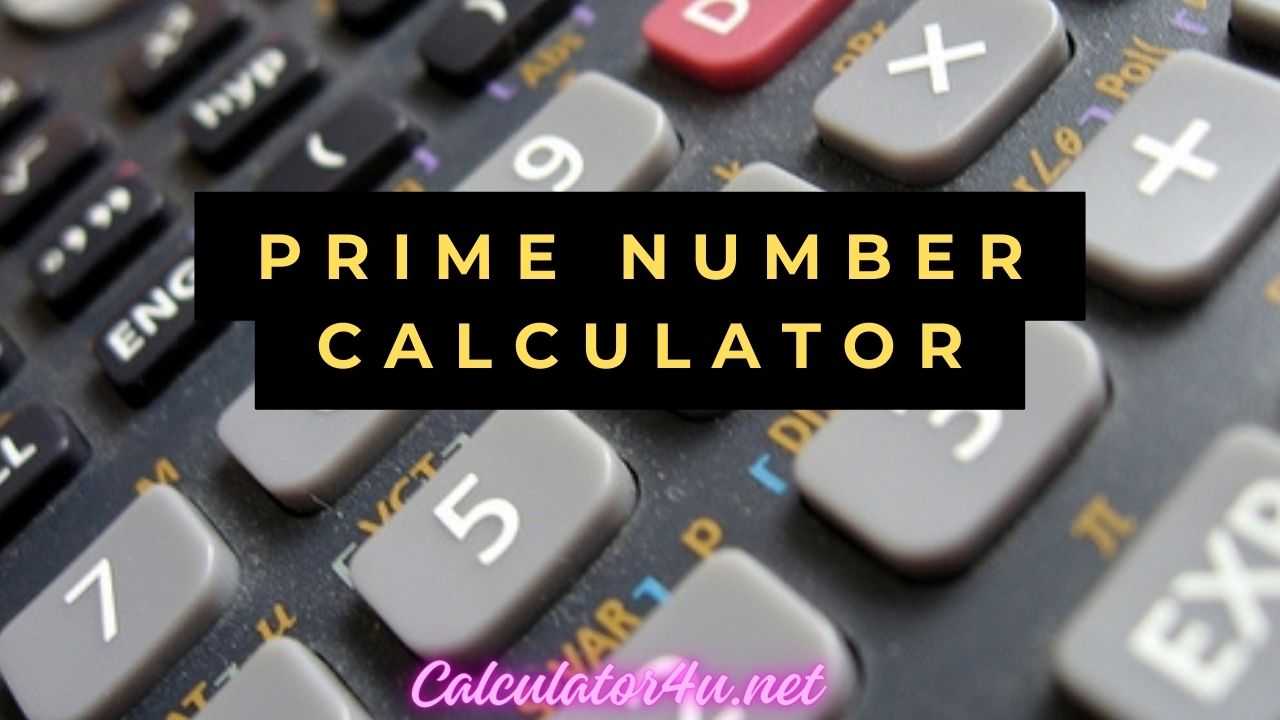Prime Number Calculator
- Prime Factorization Calculator
- Polynomial Long Division Calculator
- Polynomial Calculator
- Polar To Rectangular Calculator
Prime Number Calculator with Steps
Unravel the secrets of prime numbers effortlessly with our specialized calculator! Identify prime numbers, understand their properties, and explore the fascinating world of prime number theory. Delve into prime numbers today!
Table of Contents
Prime Number Calculator
Welcome to our Prime Number Calculator guide! Prime numbers have intrigued mathematicians for centuries due to their unique properties and fundamental role in number theory. In this article, we'll explore how to use our calculator to identify prime numbers, understand their significance, and delve into prime number theory.
Prime Number Calculator Overview
What is Prime Numbers?
A prime number is a natural number greater than 1 that has no positive divisors other than 1 and itself. In simpler terms, a prime number can only be divided by 1 and itself without leaving a remainder. Examples of prime numbers include 2, 3, 5, 7, 11, and so on.
Importance of Prime Numbers
Prime numbers play a crucial role in various mathematical and real-world applications, including:
- Cryptography: Ensuring secure communication and data encryption.
- Number Theory: Studying the properties and relationships between numbers.
- Computer Science: Optimizing algorithms and data structures.
- Finance: Analyzing and predicting market trends and patterns.
How the Calculator Works
Our Prime Number Calculator simplifies the process of identifying prime numbers by accepting a range of numbers as input and highlighting the prime numbers within that range. Simply input the starting and ending numbers of the range, and the calculator will display the prime numbers accordingly.
A prime number is a natural number greater than 1 that is not a product of two smaller natural numbers. In other words, a prime number is only divisible by 1 and itself.
How to Use the Prime Number Calculator
- Enter a positive integer in the "Number" field.
- Click on the "Calculate" button to determine whether the entered number is a prime number or not.
Calculator
Number: [__________] (Enter a positive integer here)
[Calculate]
Example
Let's say we want to check if the number 17 is a prime number.
Enter 17 in the "Number" field and click "Calculate."
The calculator will determine that 17 is a prime number because it is only divisible by 1 and 17.
Step-by-Step Guide to Using the Calculator
- Enter Range of Numbers: Input the starting and ending numbers of the range you want to analyze.
- Initiate Calculation: Click the "Calculate" button to identify prime numbers within the specified range.
- Review Result: Examine the list of prime numbers displayed by the calculator.
Practical Applications
Understanding prime numbers has practical applications in various real-world scenarios, such as:
- Internet Security: Protecting sensitive data and transactions online.
- Data Compression: Efficiently storing and transmitting large volumes of data.
- Prime Factorization: Breaking down composite numbers into prime factors for further analysis.
- Algorithm Design: Developing optimized algorithms based on prime number theory.
Advantages of Using the Calculator
- Accuracy: Provides precise identification of prime numbers within specified ranges.
- Efficiency: Saves time and effort by automating the prime number identification process.
- Versatility: Supports a wide range of number ranges, making it suitable for diverse mathematical tasks.
FAQs
Q: What is a prime number?
A: A prime number is a natural number greater than 1 that has no positive divisors other than 1 and itself.
Q: Why are prime numbers important in cryptography?
A: Prime numbers are crucial in cryptography because they form the basis for secure encryption algorithms, ensuring the confidentiality and integrity of sensitive information.
Q: How does the Prime Number Calculator work?
A: The calculator accepts a range of numbers as input and identifies the prime numbers within that range, highlighting them for easy reference.
Q: Can the calculator handle large number ranges?
A: Yes, the calculator can process large number ranges efficiently, identifying prime numbers within the specified range with precision.
Q: Are prime numbers used in computer algorithms?
A: Yes, prime numbers are used in various computer algorithms to optimize performance, enhance security, and solve complex computational problems.
Conclusion
In conclusion, our Prime Number Calculator offers a user-friendly and efficient tool for identifying prime numbers and exploring their significance in number theory, cryptography, computer science, and beyond. By following the steps outlined in this guide and utilizing the calculator's features, you can unravel the mysteries of prime numbers and apply this knowledge to various mathematical and scientific tasks.

